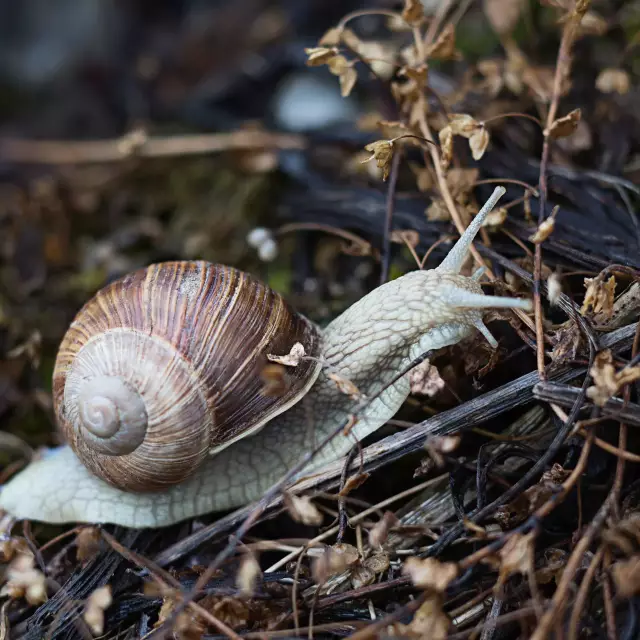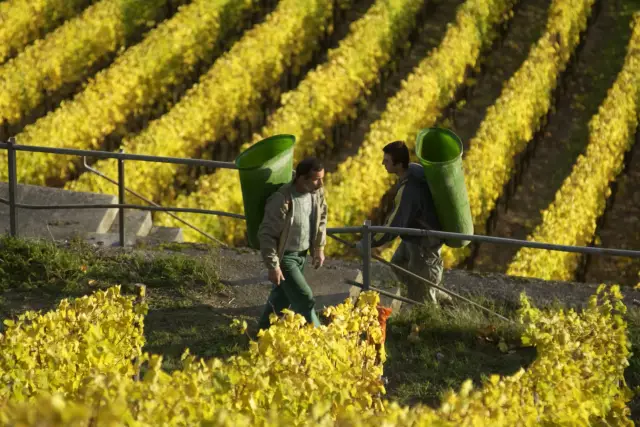Sustainability in winegrowing

Sustainable farms take into account ecology, economy and social concerns in equal measure. Every step of the process, from pruning to shipping, should be sustainable.
Facts
Sustainability in German Viticulture
Sustainability is becoming increasingly important in German viticulture. Wine producers throughout the country are increasingly striving to optimise their business management through a holistic approach to sustainability. In doing so, the ecological, economic and social aspects of the wine industry must be taken into account in equal measure. Various programmes for sustainable wine production have developed around the world in recent years.
How do sustainably oriented wine businesses work?
For wine producers, sustainable management has an influence on external operations, cellar management and marketing. Every step in the process, from planting the vineyard to shipping the finished wine, must be regularly assessed and improved. The ecological, economic and social requirements of sustainability must all be considered in equal measure.
In the vineyard, for example, this means preserving the viticultural landscape with its ecological diversity in an environmentally friendly way by only using pesticides and fertilisers that fulfil sustainability criteria.
The CO2 footprint can be reduced during distribution, for example, by using lighter, thin-walled bottles, as these are more resource-efficient to produce and transport. In marketing, there is also the possibility of using freight companies that work in a sustainable manner instead of delivering the wines with the producers' own transporters.
At the winery, resources are sourced sustainably and used as efficiently as possible, for example by switching to green electricity or installing solar panels.
Compliance with social aspects of sustainability is expressed, for example, in the fair payment and treatment of permanent employees as well as the numerous seasonal workers, who play a particularly important role in viticulture. Finally, with all these measures undertaken, it is vital to act in an economically sustainable manner so that the business itself is economically viable in the long term.
What is the difference between sustainable wine production and organic cultivation?
The difference between purely organic cultivation and a sustainable wine business is that in the certification of organic wineries, the requirements mainly involve environmentally relevant specifications for vineyard work as well as for cellar management, but social and economic aspects or even the CO2 footprint of wine production are largely disregarded. A sustainable wine industry, on the other hand, also includes aspects of ecological viticulture.
The importance of sustainability for the German wine industry
The wine industry is particularly dependent on weather conditions and the availability of natural resources. In view of ever-increasing climate change with its accompanying weather extremes, it is all the more important for wine producers to operate in a manner as climate-neutral as possible. Such a sustainable approach specifically supports the conservation of non-renewable resources and that of the vineyard ecosystem. In addition, sustainable business practices promote the existence of small producers, who are an integral part of the German wine industry.
The fact that the German wine industry not only talks about sustainability, but also implements it, is shown by the steadily increasing number of certified sustainable wineries throughout the country. Moreover, Germany has three recognised organisations through which certification of sustainable practices in viticulture is possible. Consumers recognise sustainable wines by the Fair'N Green, FairChoice® or EcoStep-Wine seals on the bottle. Geisenheim University is also a founding member of the global sustainability alliance Sustainable Wine Roundtable, which was newly founded in September 2021. Through a funding framework for sustainability in viticulture, the state of Rhineland-Pfalz also supports small businesses if they undergo recognised certification for operational sustainability.
In partnership with the scientific community, the German wine industry is engaged in additional projects that, for example, sustainably promote biodiversity. These include the programme for the "Development and Application of a Modular Biodiversity Toolkit for Viticulture in Germany" (AMBITO), in which more than 80 winegrowing businesses are participating together with the Fair'N Green organisation and Geisenheim University.
Furthermore, there are special sustainability programmes funded by the federal government to promote biodiversity in steep slopes, including the creation of cross terraces.
The various aspects of sustainability are integral elements in the education and training in German viticulture, which in the long term contributes to a viable and sustainable development of the German wine industry.
Sustainability organisations and initiatives
FAIR`N GREEN e.V
In 2013, the association FAIR`N GREEN was founded with its headquarters in Bonn. Its task is to develop a holistic system for sustainable viticulture and helps winegrowers to make sustainability goals such as reducing CO2 emissions, a greater biodiversity and social commitment objectively measurable and verifiable and to achieve them in an integrative manner. Consumers recognize the sustainable wines by the seal on the bottle and can opt for sustainable products.
FAIR'N GREEN wineries are subject to the guidelines of the FAIR'N GREEN association, which stipulate that they establish and permanently implement processes in the winery in order to continuously optimize the entire production process, the work in the vineyard and in the cellar as well as the marketing activities. In order to simplify this, all companies receive ongoing advice. As part of the certification, an individual development plan is drawn up for each winery. In addition, further analyzes are carried out, e.g. on the ecological balance or the CO2 footprint. As a minimum requirement, the wine estates have to achieve 50 percent of the points from the specified catalog of criteria in order to be allowed to use the seal. They are then required to improve by three percent annually. The application of and compliance with the guidelines are checked through annual audits.
As a member of FAIR´N GREEN, wine estates profit from a network for the exchange of knowledge, best practice solutions and information on the evaluation of individual estates. Regardless of the way each business operates, the FAIR´N GREEN sustainability system is of interest for both conventional and organic wineries. 86 companies were members of FAIR´N GREEN in 2021, including many well-known German wineries, which are thus committed to responsibility for the environment and for future generations and publicly committed to sustainability.
FairChoice®
One of the first sustainability seals in the wine industry was developed by the German Institute for Sustainable Development eV (DINE eV) in 2009 in cooperation with the Heilbronn University: FairChoice® is a scientifically based seal for tested sustainable wine production and includes 44 criteria from the areas of ecology, economy and social issues. Among the ecological criteria, the topics of water, biodiversity, plant protection or waste and recycling material were defined. Criteria for controlled, environmentally friendly viticulture and guidelines from organic associations also play a role. The social criteria include social commitment, training and further education for employees and fair dealings with employees, customers and suppliers. The criteria are supported by a value system that is defined in the FairChoice® charter and plays a central role for the companies. Even after certification, the winery is continuously monitored and advised and supported in further sustainable development.
Visit www.fairchoice.info for more information.
EcoStep-Wein
Together with the Geisenheim University in 2005, the managment system EcoStep-Wein was developed especially for small and medium-sized wine estates and sparkling wine houses. It aims at optimizing business structures and improving competitiveness. To date, around 50 wine-growing companies have been certified by EcoStep-Wein and benefit from an improvement in operational management through key figures, the determination of cost-cutting potential, environmental protection and occupational health and safety. 16 companies have formed the "EcoStep-Wine Working Group" and are continuously working on the further development of the system. Since January 2021, EcoStep-Wein has been recognized as a certificate provider for the funding framework for sustainability in viticulture.
Visit ecostep-wein.de for more information.
Award for Sustainability in Rheinhessen
Strengthening sustainability is a challenge in all areas of the Rheinhessen wine industry, but also in the upstream and downstream production steps for viable companies in the wine industry. This is supported by the competition for the sustainability award, which has been held since 2012. Every year, the award goes to suppliers and providers of products, systems and services that support the winegrowers in their sustainable management. The applications are assessed according to ecological, social and economic aspects of sustainability.
German Sustainability Code
The database of the German Sustainability Code offers a free introduction to the topic. The Ministry of Economics, Transport, Agriculture and Viticulture in Rhineland-Palatinate has published the practice-oriented "Industry Guide to the DNK". Based on 23 viticulture-specific criteria, companies can independently check and document the sustainability strategy in the company in an online-dataabae. The Ministry of Economics, Transport, Agriculture and Viticulture in Rhineland-Palatinate has published the practice-oriented "Industry Guide to the DNK". Wineries can enter the information and data on the sustainability criteria in an online database. These are checked and released for publication by the DNK. Medium-sized and small winegrowing companies in particular benefit from regular reporting and visibility when developing a sustainability strategy.
Through the Funding Framework for Sustainability in Viticulture, the state of Rhineland-Palatinate also supports small businesses with up to 3,000 euros if they undergo recognized certification for operational sustainability.
With which glass color can the largest amount of waste glass be incorporated?
In the case of green glass, slightly more than 60% waste glass is incorporated on average, with peak values of 90%. The reason for these high percentages is the good tolerance of green glass to off-color.




